Deus Ex: Mankind Divided review
Increased agency, but at what cost?
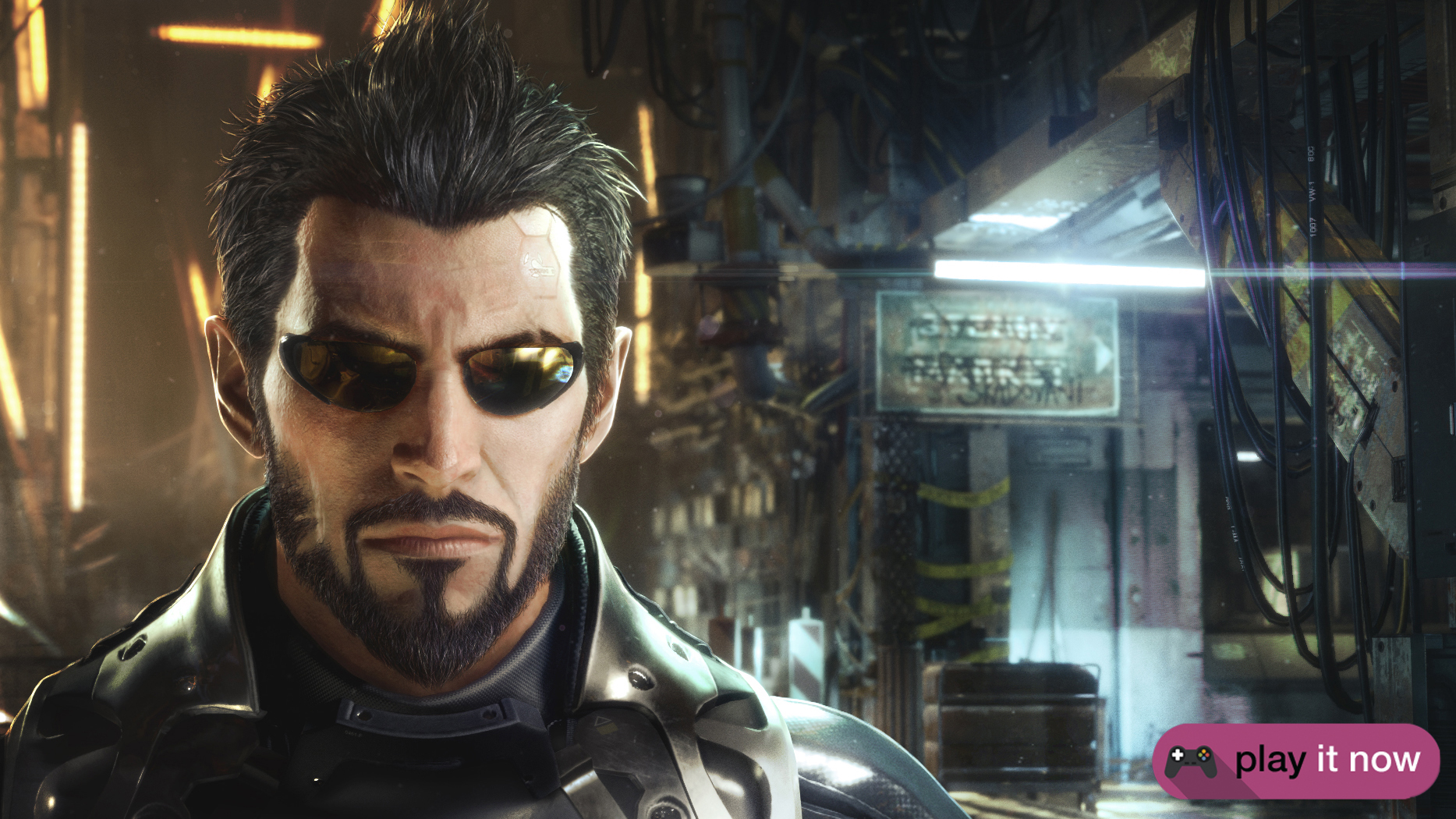
Sign up for breaking news, reviews, opinion, top tech deals, and more.
You are now subscribed
Your newsletter sign-up was successful
Deus Ex: Mankind Divided is a great game, but going into this review I want you to know, as an absolute, that it's just a few short steps from greatness.
I've been thinking about it pretty solidly for the past week since I've finished it, and I've come to the conclusion that like all great things it has flaws. At its best, Deus Ex: Mankind Divided is one of the finest games I've played this year. At its worst, it feels like it's pulling in two directions. While the narrative and gameplay aren't at a full scale war, there's definitely a spot of animosity there.
Most of the time you'll forgive it its ills. The world of Mankind Divided is full to bursting with individuals and objects to interact with; there are emails to read, doors to hack, people to investigate and stores to rob every five minutes. Roaming the game's world you'll always find another alley to run down or computer to hack.
It feels, despite the enhanced graphics, moody soundtrack and other additions afforded to the game by the jump to the next console generation, like a Deus Ex game. You'll get yourself involved in conspiracies, spend more time than is really healthy skulking around futuristic visions of European Cities. There's so much to discover, you won't want to stop.
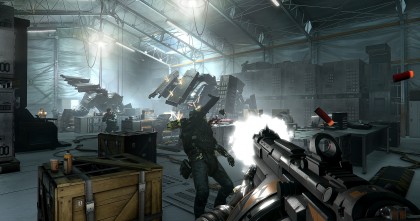
A sense of belonging
Although there's only the one hub this time, the anti-aug city of Prague. You'll revisit it several times during the game as the situation in the city worsens. By the time the game starts to come to an end, you feel a sense of belonging for the city, and all that exists within it. It's the most impressive hub in a Deus Ex game yet though, and as I said in the previous paragraph and want to repeat here for emphasis: there's a mind-boggling density of stuff to pick through.
This, or at least my desire to look at everything, is the cause for one of the first moments of dissonance in Mankind Divided. You're playing again as Adam Jensen, returning from the previous title Human Revolution. Jensen this time has a lot more agency, but people still want you to do a bunch of stuff, and they want you to tackle it fast: go save your friend from thugs, go get your augs fixed, go investigate a bombing.
Working for Interpol's shadowy TaskForce 29 doesn't seem like it should be a casual job, but my Jensen has a nearly obsessive compulsion to read every email and loot every chest. "Jensen, are you at the bomb site yet?" my commanding officers asks curtly "Not yet, something's come up" Jensen lies, playing catch with a fridge in a back-alley in Prague.
Sign up for breaking news, reviews, opinion, top tech deals, and more.
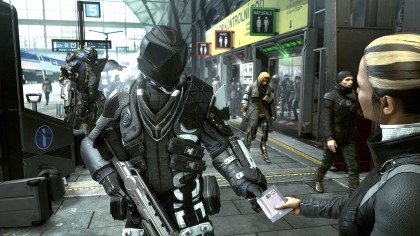
Jensen has so much agency in fact, that the game's central allegory, where it compares those with augments to victims of racism in the modern day, comes off completely flat. Police will call you made-up slurs while checking your papers, and people at work will be shitty towards you no matter how many lives you save, but knowing that Jensen could quite easily take all of them out means there's no risk.
Jensen doesn't care that police are checking his papers and making thinly veiled threats, and nor does the player, because both know how easily they could turn the guard inside out. This means the plot's central theme dies in pursuit of giving Jensen more agency, and letting the players live out their power fantasy.
These moments of ludonarrative dissonance were jarring, but if the greatest complaint tossed at the game is that it gives the player too much freedom, it's hard to complain too much.
Getting down to business
When you get into its combat, Mankind Divided is a lot of fun to play. There's a wide selection of augments (aka combat abilities), ranging from being able to jump quite high or punch through walls, all the way to a wrist mounted taser or a functional teleport, which allows you to surprise people with elbow blades to the neck.
There's a hint of resource management here as several of the more powerful augs 'overclock' your system, causing them to become glitchy. Effective power management can keep your safe, but as this system is restricted to the flashier powers, I found myself steering clear of them just to make sure nothing shorted out at the wrong moment.
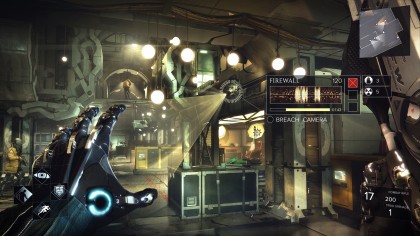
Combat still isn't as tight as the latest and greatest FPS options, but it feels right. There are just so many options. Running out of ammo in one fight I hid in a vent and scuttled to safety. Getting caught short in another I used a fridge as a projectile weapon. Adam Jensen isn't an unstoppable killing machine and underestimating your opponents will get you hurt, but he is superhuman, so you can do wondrous things to overcome any obstacles.
Weapons get more use even for stealth players this time around due to the addition of EMP ammo, which will disable cameras, robots, and other electrical equipment for a few seconds. The weapons themselves are still fairly formulaic, but the game now boasts a Crysis-esque ability to change ammo types and attachments on the fly.
It's key not to think of Deus Ex as a shooter, because it doesn't play like one and if you expect it to you'll leave disappointed. Fights are more a series of puzzles, often starting with you sliding into cover to decide how you're going to triumph. You've always got plenty of options, whether it's by turning invisible and punching a lot of people, turning turrets to your side, or cutting loose and tossing armfuls of grenades at enemies.
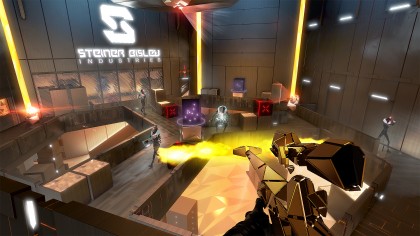
Wrapping the bundle up are the stand-alone Jensen Stories, smaller chunks of Deus Ex that you can play without digging into the full game, and the Breach game mode, an attempt to distill Mankind Divided's gameplay into short speed-runnable chunks. Breach is filled with everything grim about modern videogames, focussing on things like booster packs, leaderboards and progression systems. It's still fun to play, but lacks the sizzle of the main game.
While Deus Ex is more of the same from Square Enix, it's still one of the best games to have broken cover this year. Adam Jensen's continuing adventures suffer from a faintly ridiculous story and dodgy use of allegories, but none of that gets in the way of stellar gameplay and one of the best worlds in videogames. If you do decide to take a visit to Prague this summer you won't regret it.
This game was reviewed on PC.
Techradar's review system scores games as 'Don't Play It', 'Play It' and 'Play It Now', the last of which is the highest score we can give. A 'Play It' score suggests a solid game with some flaws, but the written review will reveal the exact justifications.

Jake Tucker is the editor in chief of TechRadar Gaming and has worked at sites like NME, MCV, Trusted Reviews and many more. He collects vinyl, likes first-person shooters and turn-based tactics titles, but hates writing bios. Jake currently lives in London, and is bouncing around the city trying to eat at all of the nice restaurants.